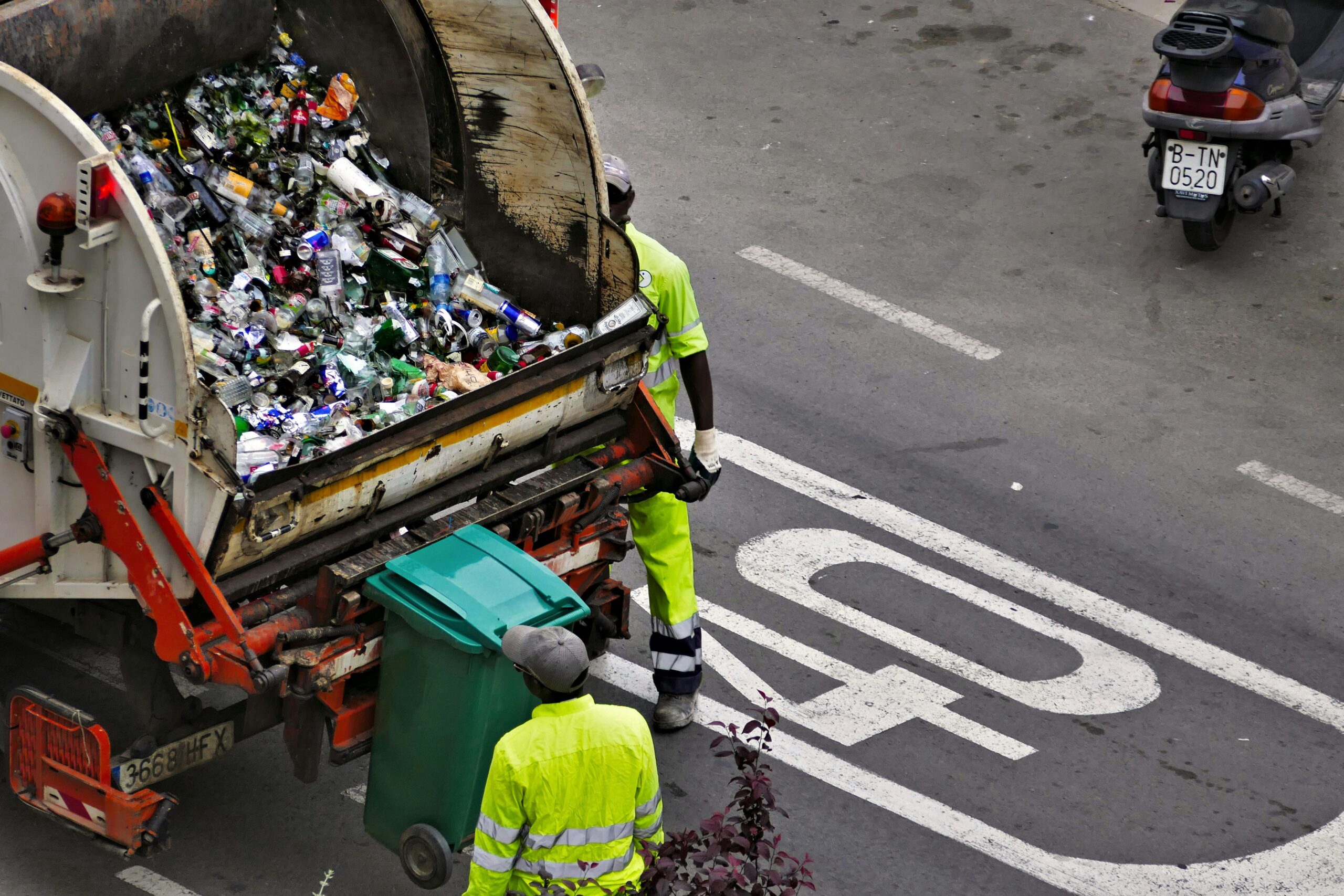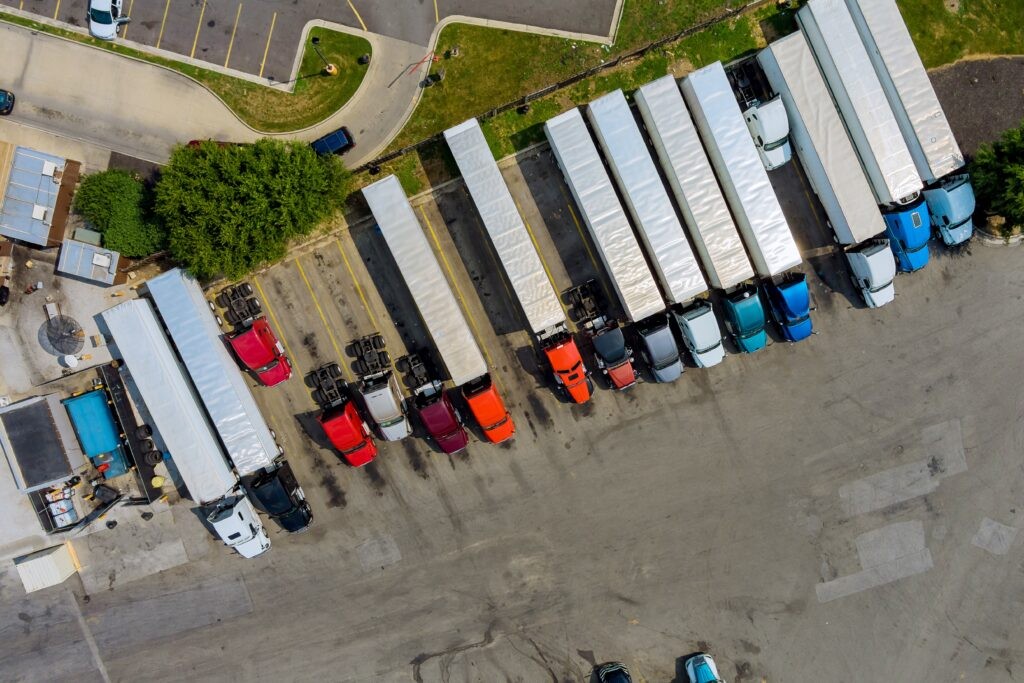Municipal waste contracts are harder to win than ever.
Traditionally, the lowest bid secured the job, but today, cost alone isn’t enough. Municipalities now require proof of service reliability, operational efficiency, and transparency before awarding contracts.
For waste management providers, this shift presents a major challenge. Companies must not only complete scheduled collections but also track and verify every service event in real-time to avoid disputes and penalties. Traditional tracking methods aren’t enough to meet these expectations.
This article explores why outdated tracking systems put waste companies at a disadvantage, the biggest obstacles to proving service reliability, and how AI and real-time data provide the competitive edge needed to win contracts.
Key Challenges for Waste Companies
Municipalities are raising their expectations for waste collection services, requiring greater accuracy, transparency, and accountability from providers.
Simply completing scheduled routes is no longer enough—companies must also provide verifiable proof of service to avoid disputes and contract penalties.
However, many waste management providers still rely on manual tracking, delayed reporting, and reactive issue resolution, making it difficult to meet these evolving standards. As cities move toward data-driven contract evaluations, companies that lack automated verification risk falling behind.
The following challenges illustrate why traditional tracking methods are no longer sufficient:
- Lack of Real-Time Visibility
- Waste companies often have no immediate way to verify a completed route or missed pickup until complaints are filed.
- In San Antonio, nearly 51,000 trash pickups were missed in 2024, prompting the city to propose a $6 million investment in tablets and software to improve service tracking.
- Limited Accountability for Missed Pickups
- If a resident reports a missed collection, municipalities expect providers to justify it.
- Without camera footage or real-time tracking, companies struggle to prove the true cause—whether it was a blocked bin, an obstructed road, or a genuine oversight.
- Inconsistent Record-Keeping
- Paper logs, spreadsheets, and manual data entry introduce errors, leading to inaccurate reports that make it difficult to prove service completion.
- Studies show that manual data collection in waste management leads to inefficiencies and processing errors, preventing companies from optimizing their operations.
- Rising Standards for Data-Driven Reporting
- Cities are implementing performance-based evaluations, requiring providers to submit real-time tracking data instead of relying on reactive issue resolution.
- AI-powered asset tracking solutions now allow companies to analyze waste generation patterns, collection frequencies, and disposal trends in real time, eliminating human error.
The Consequences of Failing to Adapt
Companies that cannot provide real-time service verification risk falling behind competitors that can.
Without automated reporting, GPS validation, and AI-powered tracking, waste providers face an uphill battle in proving their reliability and securing long-term contracts.
The next section explores how AI and real-time data are solving these issues—helping companies eliminate disputes, optimize operations, and win more municipal contracts.
The Solution – Leveraging AI and Real-Time Data for Service Verification
To meet rising municipal expectations and stay competitive, waste management companies must move beyond manual tracking and adopt AI-powered, real-time data solutions.
These technologies eliminate service disputes, improve efficiency, and provide concrete proof of performance, making providers more attractive in contract bidding.
How AI and Real-Time Data Solve Key Industry Challenges
To overcome the limitations of manual tracking and meet municipal expectations, waste management companies are turning to AI and real-time data solutions. These technologies provide accurate service verification, reduce disputes, and optimize operations.
The following advancements are transforming the industry:
- AI-Powered Cameras for Service Verification
- Mounted cameras on collection trucks capture images or video of each pickup, ensuring proof of service.
- If a bin is not collected, the system automatically logs the reason—such as obstruction, overfilled bin, or lack of curbside placement—reducing false complaints.
- Municipalities receive instant documentation, preventing unnecessary disputes.
- GPS and GIS Tracking for Route Completion
- Real-time GPS tracking ensures every truck follows its assigned route and completes scheduled pickups.
- GIS (Geographic Information System) data provides a visual record of completed routes, eliminating manual reporting errors.
- In San Antonio’s proposed waste tracking upgrade, city officials plan to use GPS-equipped software to pinpoint service failures and reduce complaints.
- Automated Reporting for Municipal Compliance
- AI-generated reports are sent automatically to municipalities, confirming service completion with timestamps and geolocation data.
- This removes the need for manual data entry, reducing errors and ensuring contract compliance.
- Cities implementing performance-based waste management standards, such as SWEEP, prioritize companies that provide automated reporting over those relying on traditional logs.
- AI-Driven Bin Sensors to Optimize Collection Routes
- Sensors inside waste bins detect fill levels and alert collection teams when a pickup is necessary, preventing unnecessary trips.
- By optimizing routes, companies reduce fuel costs, vehicle wear, and carbon emissions, aligning with sustainability goals set by many municipalities.
The Competitive Advantage of AI and Automation
Companies that integrate AI-powered tracking, automated reporting, and smart route optimization gain a clear advantage in municipal contract bidding.
These tools:
- Eliminate service disputes with concrete, verifiable proof of performance.
- Optimize operations to reduce costs and improve efficiency.
- Enhance transparency, making providers more appealing to municipalities.
Real-World Impact – How AI and Real-Time Data Are Reshaping Waste Management
Waste management companies that have adopted AI and real-time data tracking are seeing measurable improvements in service accuracy, cost savings, and contract retention.
These technologies are not just theoretical solutions—they are delivering tangible results for municipalities and service providers alike.
Proven Benefits of AI and Data-Driven Waste Management
Cities and waste management providers that have adopted AI and real-time data tracking are already seeing significant improvements.
From reducing service disputes to cutting operational costs, these technologies are delivering measurable results. Here are some of the key benefits:
- Reduction in Missed Pickups and Service Disputes
- AI-powered tracking has helped cities like London and San Francisco reduce service complaints by pinpointing the exact cause of missed collections and providing real-time resolution.
- Waste companies using AI cameras and GPS verification have cut down false missed pickup claims, reducing penalties and contract disputes.
- Increased Operational Efficiency and Cost Savings
- Automated route optimization has led to fuel savings of up to 20 percent by eliminating unnecessary trips and improving fleet efficiency. (Link Labs)
- AI-driven bin sensors ensure collections only occur when needed, reducing wear and tear on vehicles and lowering maintenance costs.
- Stronger Contract Renewals and Competitive Bidding Advantage
- Municipalities are prioritizing providers that offer real-time reporting and performance transparency in contract evaluations.
- Companies leveraging AI and automated tracking are more likely to secure long-term contracts, as they provide data-driven proof of service reliability.
Why Waste Companies Must Act Now
The industry is shifting toward data-backed contract evaluations. Companies that continue to rely on manual tracking and reactive problem-solving risk falling behind competitors who can offer AI-driven transparency and efficiency.
By investing in real-time tracking, automated reporting, and AI-powered service verification, waste companies can not only reduce operational costs and service disputes but also position themselves as the preferred choice for municipalities.
The Competitive Edge – Why Investing in AI and Data is Crucial
Waste management companies that embrace AI, real-time tracking, and automated reporting are positioning themselves as leaders in an industry that is rapidly shifting toward data-driven contract evaluations.
Municipalities are no longer basing decisions solely on cost; they are prioritizing service reliability, efficiency, and verifiable performance data when awarding contracts.
Why AI and Data Give Companies an Advantage
By leveraging AI and real-time data, waste management companies can improve service verification, reduce costs, and strengthen their position in contract bidding.
Here’s how these technologies provide a competitive advantage:
- Stronger Positioning in Contract Bidding
- Municipalities increasingly favor providers that offer real-time reporting and transparent service tracking over those relying on manual verification.
- Companies that integrate AI-powered monitoring and GPS validation can present municipalities with indisputable proof of service completion, giving them a competitive edge over companies using outdated tracking methods.
- Cost Reduction and Operational Efficiency
- AI-driven waste logistics have been shown to reduce transportation distances by up to 36.8%, cut costs by 13.35%, and decrease time spent on waste collection by 28.22%.
- Automated route optimization minimizes unnecessary trips, leading to lower fuel consumption and maintenance costs.
- Higher Contract Retention and Renewal Rates
- Waste companies that provide data-backed service verification build trust with municipalities, increasing their chances of long-term contract renewals.
- Automated compliance reporting helps providers stay ahead of regulatory requirements, ensuring smoother contract negotiations.
Staying Ahead in a Competitive Industry
Municipalities are increasingly adopting performance-based waste management models, where AI-powered verification is an expectation, not an option.
Companies that fail to modernize their tracking and reporting systems will find themselves losing contracts to competitors that provide greater efficiency and transparency.
With the growing demand for AI-driven waste management solutions, now is the time for providers to invest in technology that not only enhances efficiency but also secures their place in an increasingly data-driven market.
Conclusion – The Future of Waste Management Contracts
The waste management industry is rapidly evolving, and data-driven service verification is becoming the new standard. Municipalities are prioritizing AI-powered tracking, real-time reporting, and automated compliance tools when selecting service providers.
Companies that continue to rely on manual tracking and reactive problem-solving risk losing contracts to competitors that offer greater transparency and efficiency.
AI and automation are already proving their value. These advancements not only improve efficiency but also align with sustainability goals that many municipalities are adopting.
Why Taking Action Now Matters
- Municipalities are shifting toward data-backed performance evaluations, making AI-powered tracking a competitive necessity.
- Automated verification and real-time reporting eliminate service disputes and strengthen contract renewals.
- AI-driven route optimization and waste sorting reduce operational costs and increase efficiency, making service providers more attractive to municipalities.
Winning and retaining municipal waste contracts is no longer just about offering the lowest price. Companies that invest in AI and real-time data tracking will gain a long-term competitive edge, ensuring consistent contract success in an increasingly demanding market.







































